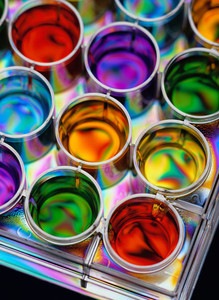Argentina’s National Administration of Drugs, Foods and Medical Devices (Administración Nacional de Medicamentos, Alimentos y Tecnología Médica, ANMAT) enforces a robust biologicals framework, ensuring safe biosimilars through rigorous approvals, adaptive regulations, and global alignment—solidifying its role as a regional regulatory leader in advanced therapies.
Advancing biologicals regulation in Argentina: from registration to global harmonization
Home/Reports
|
Posted 10/10/2025
 0
Post your comment
0
Post your comment

Argentina has established a rigorous and science-driven regulatory system for biological and biosimilar medicines under the oversight of ANMAT. As highlighted by Gastón Morán at the 2025 Biosimilar Medicines Conference, ANMAT’s approach combines strict registration processes, a well-defined legal framework, and active participation in global regulatory harmonization. This article explores these three pillars, showcasing how Argentina is positioning itself as a regional leader in biologicals regulation while aligning with international standards [1].
A Multistage product registration process
ANMAT enforces a structured, multi-phase registration system for biological and biosimilar medicines, ensuring safety and efficacy from approval to post-market surveillance. The process includes:
- Marketing Authorization & National Registry (REM): Products must first obtain approval and be listed in the National Registry of Medicines (Registro Nacional de Medicamentos, REM).
- Post-Registration Monitoring: Once approved, biologicals undergo continuous oversight, including evaluations of manufacturing changes, formulation updates, and pharmacovigilance to track long-term safety.
This lifecycle approach ensures that any modifications—whether in production, labelling, or indications—remain under strict regulatory control, maintaining product integrity over time.
A Robust legal framework for biologics & biosimilars
Argentina has implemented tailored regulations to address the complexities of biologics, with key policies including:
- Regulation 7075/11: General requirements for biological products.
- Regulation 7729/11: Specific pathway for biosimilar approvals, emphasizing comparability to reference products.
- Regulation 741/2025: Defines comparability standards, crucial for biosimilar development.
Additional rules cover advanced therapies (179/18), recombinant drugs (3397/12), good manufacturing practices (4159/23), and marketing authorization procedures (9709/19). This evolving framework reflects Argentina’s commitment to science-based, transparent regulation that keeps pace with innovation.
International alignment and regulatory reliance
ANMAT actively engages in global harmonization to streamline approvals and enhance trust in its regulatory decisions. Key initiatives include:
- Reliance Best Practices Manual: A guide for leveraging other regulators’ assessments, e.g., EMA, FDA, to accelerate reviews.
- Membership in IPRP & ICH: Participation in the International Pharmaceutical Regulators Programme (IPRP) and International Council for Harmonisation (ICH) ensures alignment with global standards.
- Working Groups on biosimilars and gene therapies: ANMAT contributes expertise while adopting international best practices.
These efforts not only reduce duplication in regulatory reviews but also strengthen Argentina’s role in shaping global biologics policy.
Conclusion: a model for regional leadership
Argentina’s regulatory system for biologicals—combining rigorous oversight, adaptive legislation, and global collaboration—sets a benchmark for Latin America. By balancing national priorities with international integration, ANMAT ensures patient access to safe, effective biologicals while fostering innovation. As Argentina continues to refine its framework, its influence in global regulatory networks is poised to grow, reinforcing its reputation as a trusted authority in medicines regulation.
Related articles
New decree promotes Argentine-made biosimilar medicines
Nomenclature of biologicals and biosimilars in Argentina
|
LATIN AMERICAN FORUM View the latest headline article: Avances en la regulación de productos biológicos en Argentina: del registro a la armonización global Browse the news in the Latin American Forum! Register to receive the GaBI Latin American Forum newsletter. Inform colleagues and friends of this new initiative.
FORO LATINOAMERICANO Ver el último artículo de cabecera: Avances en la regulación de productos biológicos en Argentina: del registro a la armonización global !Explore las noticias en el Foro Latinoamericano! Regístrese para recibir el boletín informativo GaBI Foro Latinoamericano. Informe a colegas y amigos sobre esta nueva iniciativa. |
References
1. Morán, G. (3-4 April 2025). Director of the Office of Evaluation and Control of Biologicals and Radiopharmaceuticals, INAME-ANMAT. Presentation at the Biosimilar Medicines Conference, Brussels, Belgium
2. GaBI Online - Generics and Biosimilars Initiative. Regulating biosimilars in Argentina: ANMAT’s approach [www.gabionline.net]. Mol, Belgium: Pro Pharma Communications International; [cited 2025 Oct 10]. Available from: www.gabionline.net/reports/regulating-biosimilars-in-argentina-anmat-s-approach
Permission granted to reproduce for personal and non-commercial use only. All other reproduction, copy or reprinting of all or part of any ‘Content’ found on this website is strictly prohibited without the prior consent of the publisher. Contact the publisher to obtain permission before redistributing.
Copyright – Unless otherwise stated all contents of this website are © 2025 Pro Pharma Communications International. All Rights Reserved.
Guidelines
US guidance to remove biosimilar comparative efficacy studies
New guidance for biologicals in Pakistan and Hong Kong’s independent drug regulatory authority
Policies & Legislation
EU accepts results from FDA GMP inspections for sites outside the US
WHO to remove animal tests and establish 17 reference standards for biologicals
EU steps closer to the ‘tailored approach’ for biosimilars development

Home/Reports Posted 21/11/2025
The best selling biotechnology drugs of 2008: the next biosimilars targets









Post your comment